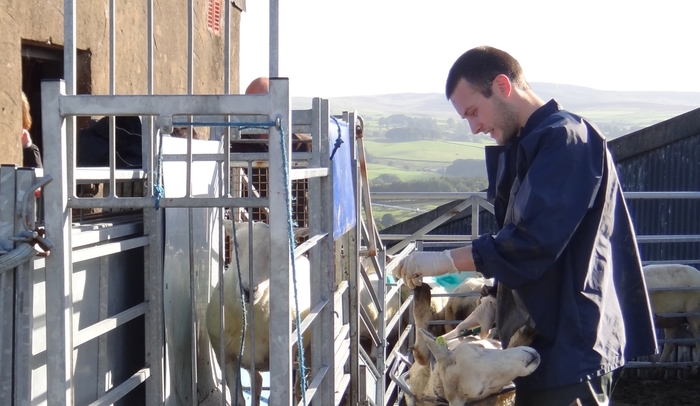Sheep flocks often suffer from an increase in lameness during the later summer months, so much so that shepherds are being urged to implement disease mitigation measures in the run up to weaning.
“There does tend to be a seasonal spike in sheep lameness during the summer – but equally it’s the ideal time to try and put a lid on any problems before any disease becomes more established,” advises vet Joe Angell from Wern Vets, based in North Wales.
“For example, weaning time is a good opportunity to earmark any persistently lame ewes for culling. And if you rear your own flock replacements, make sure you only breed from sound ewes or ewe lambs that have not been lame,” he says.
He adds that prompt, appropriate treatment of any affected animals is always important and that vaccination of ewes against footrot after shearing can also help.
“Always seek veterinary guidance when it comes to appropriate treatment. Footrot is the most common cause of infectious lameness but is also a risk factor for other foot disease issues, such as contagious ovine digital dermatitis (CODD). These are the two most important causes of lameness in UK sheep; they may be two different diseases yet are strongly associated in their infectivity and transmission routes1. Footrot is certainly a risk factor for CODD, so if you can keep this widespread disease under control you can also help to mitigate the impact of any CODD issue in your flock.
“Indeed, for improved management of sheep lameness, it’s important to focus on the whole spectrum of disease issues, rather than any one problem in particular. For example, if lambs are affected by scald during the summer, regular foot bathing can help.”
Dr Angell says that culling persistently lame ewes, prompt treatment of clinical cases and vaccination are all part of the Five-Point Plan for reducing the incidence of sheep lameness.
“The Five-Point Plan certainly provides a useful framework for devising a holistic lameness control plan1. Right across the industry there’s real momentum behind this lameness reduction programme and many sheep farmers have confirmed that implementing it and sustaining it will help to keep flock lameness incidence down to 2% of your flock or less.
“Remember too that implementing measures to reduce the propagation of infection around feed troughs and when gathering sheep are other important considerations, but so too is quarantining any bought-in sheep.
“Consider buying only from a single farm with a known disease history and always quarantine any incoming animals away from the main flock for at least four weeks. In addition, you should also turn any new sheep over on arrival and examine their feet for signs of disease; there may be no evidence of limping, but you may still be able to see early CODD lesions,” he warns.


